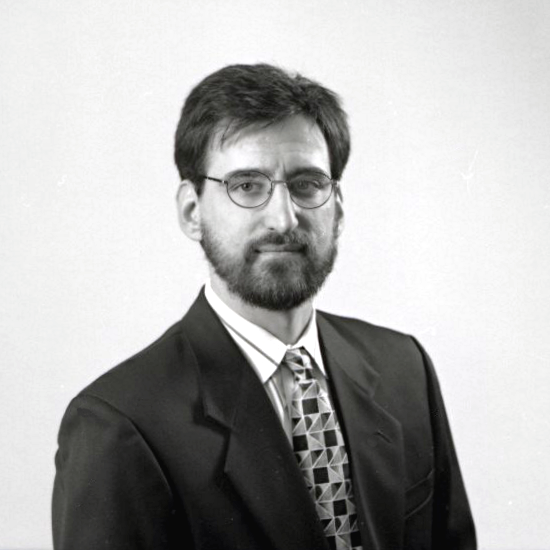Faculty 2010
Our lecturers are hand picked for their in-depth expertise and ability to convey their experiences to maximise the learning experience of our delegates. They also are friendly, approachable and able to have a good laugh! The intensive, yet informal, atmosphere at the XML Summer School gives delegates the opportunity to pick the brains of our expert faculty, both during the classes and afterwards over dinner or in the bar.
Faculty Board members Bob DuCharme, John Chelsom, and Peter Flynn also teach.
- Adam Retter
-

Adam Retter is an experienced Software Engineer with over a decade’s experience in developing commercial Web Applications. More recently Adam has been focusing on Open Data Applications, and through these efforts became a core developer on the eXist Open Source Native XML Database project in 2005.Adam is a strong proponent of XML Application Server architectures which power end-to-end XML and XRX Applications. To further advance XML application development, Adam founded the EXQuery project in early 2009 and has since been working with the community and as part of the EXPath project to standardise and improve XML application development with XQuery, XSLT and XPath.
Adam is teaching in the Hands-on Introduction to XML course.
- Dr. Andy Seaborne
-

Andy has been working on the storage and query of RDF data, first as a researcher at HPLabs, and now at Talis.Andy is continuing his participation in the SPARQL standardization process. He started as a member of the W3C RDF Data Access Working Group and is a member of the current W3C SPARQL Working Group. Andy co-edits the query
language specification and lead the proposal submission for SPARQL Update.He also works on Jena, the open source RDF framework for Java, where he has contributed the query engine, ensuring that complete implementations of the standards are available, and several persistent storage sub-systems.
Andy has a PhD in Computer Science from the Computer Laboratory at the University of Cambridge.
Andy is teaching in the Semantic Technologies course.
- Blaine Cook
-

Blaine Cook is a web developer at heart who advocates
technologies and approaches in order to challenge identity and privacy silos. Working for BT with Kevin Marks and JP Rangaswami, his primary focus is creating open source tools to enable decentralised social networks. He is co-chair of the OAuth IETF working group, in addition to working on standards including Webfinger and PubSubHubbub. Prior to moving to the UK, Blaine was the lead developer for Twitter, where he sculpted the concept of web-native low latency messaging systems.Blaine is teaching in the Trends and Transients course.
- Debbie Lapeyre
-

Ms. Lapeyre has been working with XML, XSLT, and XPath since their inception and with SGML (XML’s predecessor) since 1984. Debbie is an architect and developer of XML Tag Sets (vocabularies) who designs and writes the schemas (DTD, XSD, RELAX NG) that model those vocabularies. Most recently, she serves as the architect and as a member of the design team for the NLM Journal Archiving and Interchange Tag Suite, now the de facto standard for tagging journal articles worldwide.As a document-oriented publishing analyst, Debbie helps clients to analyze their information management, retrieval, and distribution/publication requirements and translates these requirements into functioning production systems, based on XML technologies. As a senior XSLT and XSL-FO consultant for Mulberry Technologies, Inc., she designs both pages and specifications for complex XSLT transforms and stylesheets as well as develops prototype XSLT applications.
Debbie is a member of the XML Guild. She is also a co-chair of “Balisage: The Markup Conference” and has previously co-chaired “Extreme Markup Languages”, “Markup Technologies”, and the annual international “SGML/XML’XX Conference”. She teaches XML, XSLT, XSL-FO, Schematron, What-is-XML-and-Why-Should-You-Care, and XML print workflows at venues all over the English-speaking world.
Debbie is teaching in the Hands-On Introduction to XML course.
- Gary Cornelius
-
Gary Cornelius is an experienced XML consultant and information architect, working for Eleven Informations, LLP. Gary has been an active contributor to XML mailing lists and standards for over a decade and enjoys technical project management involving XML. He has developed several XML and web related training courses for IT engineers and managers. Interested in data visualisation and usability, he has investigated many tools and techniques for visualization of complex XML data. Gary has both broad knowledge and hands-on experience of XML having worked across many market sectors on XML information architectures. He studied publishing, graphic communication management, and digital imaging.
Gary is teaching in the Hands-On Introduction to XML course.
- Dr. Henry Thompson
-

Henry S. Thompson divides his time between the School of Informatics at the University of Edinburgh, where he is Reader in Artificial Intelligence and Cognitive Science, based in the Institute for Communicating and Collaborative Systems, and independent consulting on XML-related business strategy.He received his Ph.D. in Linguistics from the University of California at Berkeley in 1980. His university education was divided between Linguistics and Computer Science, in which he holds an M.Sc. While still at Berkeley he was affiliated with the Natural Language Research Group at the Xerox Palo Alto Research Center, where he participated in the GUS and KRL projects. His research interests have ranged widely, including natural language parsing, speech recognition, machine translation evaluation, modelling human lexical access mechanisms, the fine structure of human-human dialogue, language resource creation and architectures for linguistic annotation. His current research is focussed on the semantics of markup, XML pipelines and more generally understanding and articulating the architectures of the Web.
He was a member of the SGML Working Group of the World Wide Web Consortium which designed XML, a major contributor to the core concepts of XSLT and W3C XML Schema and is currently a member of the XML Core, XML Schema and XML Processing Model Working Groups of the W3C. He has been elected three times to the W3C TAG (Technical Architecture Group). He was lead editor of the Structures part of the XML Schema W3C Recommendation, for which he co-wrote the first publicly available implementation, XSV. From 2002 through 2010 he was a member of the technical staff of the World Wide Web Consortium (W3C), where he worked in the XML Activity. He has presented many papers and tutorials on SGML, DSSSL, XML, XSLT, XML Schema, XML Pipelines and Web Architecture in both industrial and public settings over the last thirteen years.
Homepage: http://www.ltg.ed.ac.uk/~ht/
Henry is teaching in the Trends and Transients course.
- Dr. Hubert le van Gong
-

Dr. Hubert le van Gong earned a Ph.D. in distributed computing systems at the Pierre & Marie Curie University in Paris, France.Upon completion of his Ph.D. he was hired by Sony Electronics to conduct research in their Distributed Systems Laboratory in the Bay Area, California. His research activities ranged from distributed virtual environments to voice over IP, digital interactive television and security in contactless cards technology. In 2001, he took on representing Sony at the Liberty Alliance Standard organization to support the creation of specifications for federated identity and single sign-on.
In 2005, Hubert joined the CTO’s Office at Sun Microsystems to continue his work on identity management and support technical collaboration in web services with key partners like Microsoft. He also served as technical evangelist and has done many presentations (both internal and external) on identity management and its uses in the enterprise or eGovernments initiatives.
Hubert represented Sun Microsystems at the Technical Expert Group of Liberty Alliance and is the author or co-author of several specifications in web services and identity management. He has also participated in numerous software development projects like the implementation of the OAuth protocol in the open source project Jersey.
Hubert is teaching in the Web Services and Identity course.
- Dr. Jeni Tennison
-

Dr. Jeni Tennison is an independent consultant. She specialises in XSLT and XML schema development with forays into AJAX and RDF. She trained as a knowledge engineer, gaining a PhD in collaborative ontology development, and since becoming a consultant has worked in a wide variety of areas, including journal publishing, medieval manuscripts, legislation and financial services. She is author of several books including “Beginning XSLT 2.0” (Apress, 2005).Jeni was an invited expert on the W3C’s XSL Working Group during the development of XSLT 2.0 and was one of the founders of the EXSLT initiative to standardise extensions to XSLT and XPath.
Jeni is teaching in the Semantic Technologies course and in the XSLT and XQuery course.
- Leigh Dodds
-

Leigh Dodds is a semantic web geek who is passionate about the web, open standards and open data. Leigh has a strong technical background in developing with Java, XML, and semantic web technologies; has written numerous articles on related topics for IBM developerWorks and XML.com, and has presented at a number of technical conferences. Leigh was previously CTO at Ingenta and now works for Talis as a Programme Manager for the Talis Platform.Leigh is teaching in the Semantic Technologies course.
- Dr. Marc Hadley
-

Dr. Marc J. Hadley is a Principal Engineer with the Mitre Corporation where he works on a variety of projects for federal agencies. Prior to joining Mitre, Marc was a Java and Web Services Architect at Sun Microsystems where he lead the development of JSR 311, a Java API for RESTful Web Services and JSR 224 a Java API for SOAP-based services. Marc represented Sun Microsystems in the W3C XML Protocol and W3C Web Services Addressing working groups where he was co-editor of the SOAP 1.2 and WS-Addressing specifications. Marc also served as the technical lead for Sun’s participation at the Web Services Interoperability Organisation (WS-I).Marc is teaching in the Web Services and Identity course.
- Matt Patterson
-
Matt Patterson has over 10 years experience building for the web, from web design and front-end development all the way through to back-end development. Along the way he’s co-written a book on CSS, which is currently in its second edition and has been translated into Italian and Spanish, led a software team at the BBC, and spent five of the last ten years running design- and development-focussed consultancies. He was also a co-organiser of the NoSQL Europe conference.
He has a personal blog over at Reprocessed.
Matt is teaching in the Trends and Transients course.
- Dr. Michael Kay
-

Dr. Michael Kay is the founder and technical director of Saxonica Limited, which develops both the open source and commercial variants of the Saxon XSLT and XQuery processor, as well as offering XML-related consultancy services.Michael is an invited expert on the W3C working groups developing XSLT, XQuery, and XML Schema. In particular he is the technical lead on the XSL Working Group, which is currently developing a new version of the language to handle streaming transformations of large documents. He is also the author of the definitive reference book on XSLT 2.0, and has written numerous articles and conference papers on XSLT, XQuery, and related technologies. He is a member of the XML Guild, a group of leading independent XML consultants, and joint winner of the XML Cup in 2005, awarded for contributions to the XML community.
Dr. Kay spent nearly 25 years with the British computer manufacturer ICL (later Fujitsu) where he designed and implemented a wide range of data management software products; appointed an ICL Fellow, he was also responsible for advising the company’s senior management and customers on technology strategy. He gained his Ph.D. at the University of Cambridge for research on database management systems, studying under Maurice Wilkes.
Michael lives in Reading, England, 25 miles down the road from Oxford.
Michael is teaching in the XSLT and XQuery course.
- Norman (Norm) Walsh
-

Norman Walsh is a Principal Technologist in the Information & Media group at Mark Logic Corporation where he assists in the design and deployment of advanced content applications. Norm is also an active participant in a number of standards efforts worldwide: he is chair of the XML Processing Model Working Group at the W3C where he is also co-chair of the XML Core Working Group. At OASIS, he is chair of the DocBook Technical Committee.Before joining Mark Logic, Norm participated in XML-related projects and standards efforts at Sun Microsystems. With more than a decade of industry experience, Mr. Walsh is well known for his work on DocBook and a wide range of open source projects. He is the principle author of DocBook: The Definitive Guide.
Norm is teaching in the XSLT and XQuery course and in the Web Services and Identity course.
- Paul Downey
-

Paul Downey is a member of Osmosoft, a small Open Source Innovation team at BT where he contributes to a number of Open Source projects, notably TiddlyWiki. Formally a participant in the standardisation of XML and Web services at the W3C, WS-I and OASIS, Paul now spends his time evangelising the value of REST and the Web through code, presentations and uber-doodles such as the mildly notorious The Web is Agreement.Paul is teaching in the Web Services and Identity course.
- Priscilla Walmsley
-

Priscilla Walmsley is a senior consultant and managing director at Datypic, specializing in XML architecture and implementation. She is an expert in XML core technologies (XQuery, XSLT, XML Schema), content management and service-oriented architectures.Priscilla was a member of the W3C XML Schema Working Group from 1999 to 2004, where she served as an Invited Expert. She is the author of Definitive XML Schema (Prentice Hall PTR, 2001), and XQuery (O’Reilly Media, 2007). In addition, she co-authored Web Service Contract Design and Versioning for SOA (Prentice Hall 2008).
Priscilla is teaching in the XSLT and XQuery course.
- Robin Berjon
-

Robin has spent the better part of this decade setting standards for a large variety of XML and Web technologies within the W3C and other organisations. He has served as author or editor for more than dozen W3C standards, and chaired multiple groups working on XML optimisation and Web APIs. In addition to this, Robin has been an active participant in the Perl community releasing a number of open source projects around XML and Web publishing. In his copious spare time he reads, writes, and gets bitten by his cat.Robin is teaching in the Trends and Transients course.
- Robin Wilton
-

Robin Wilton is the founder and director of Future Identity Ltd., an independent company set up in January 2009 to provide structured consultancy on digital identity, privacy and public policy. Future Identity’s clients have included: the Liberty Alliance; the UK VOME project (Visualisation and Other Methods of Expression); Internet Society; a UK Central Government department and the UK Information Commissioner’s Office. Future Identity’s focus is on how to balance technical and policy measures for better privacy outcomes.Robin is also Director of Privacy and Public Policy at the Kantara Initiative – a world-wide consortium on interoperable digital identity – and has worked on privacy-enhancing applications of the Liberty Alliance’s SAML implementations. He is an expert reviewer on two European FP7 projects relating to the Critical Financial Infrastructure, and is on the advisory boards of the European PrimeLife Project on privacy and identity management, as well as the UK’s EnCoRe project on Consent and Revocation.
Robin graduated from Oxford University in 1984 with an MA (Joint Honours) in Philosophy and Modern Languages; he worked for IBM for 12 years in systems engineering, technical support and consultancy; he left IBM to join an internet start-up, JCP Trustbase, which was acquired by Sun Microsystems in 2000. Robin spent 9 years at Sun, the last 4 as Corporate Architect for Federated Identity in Sun’s CTO team. He is a Fellow of the British Computer Society, with Chartered IT Professional status.
He has published papers on:
- Identity and Privacy in the Digital Age (International Journal of Intellectual Property Management)
- Achieving Privacy in a Federated Identity Management System (Financial Cryptography and Security 2009) – Landau, Le Van Gong, Wilton
- What’s happened to PETs? (Information Security Technical Report)
Robin’s digital footprint:
website: http://futureidentity.eu
blog: http://futureidentity.blogspot.comRobin is teaching in the Web Services and Identity course.
- Thomas Roessler
-

Thomas Roessler joined the W3C Team in November 2004 to work on security, privacy, and European policy issues. He currently serves as Security Activity Lead and Acting Technology and Society Domain Leader.Prior to joining W3C, Thomas worked at the University of Bonn on numerics of partial differential equations, and collected programming, systems administration and computer forensics experience. He served as the lead maintainer of the free software mail user agent mutt. Thomas has published and given talks on topics including anonymization services, legal questions of digital signatures, and online privacy. He holds a degree in mathematics.
Thomas served as the Technical Liaison to the ICANN Board in 2009, and is chair of the Board of the World Wide Web Foundation.
Thomas is teaching in the Web Services and Identity course.